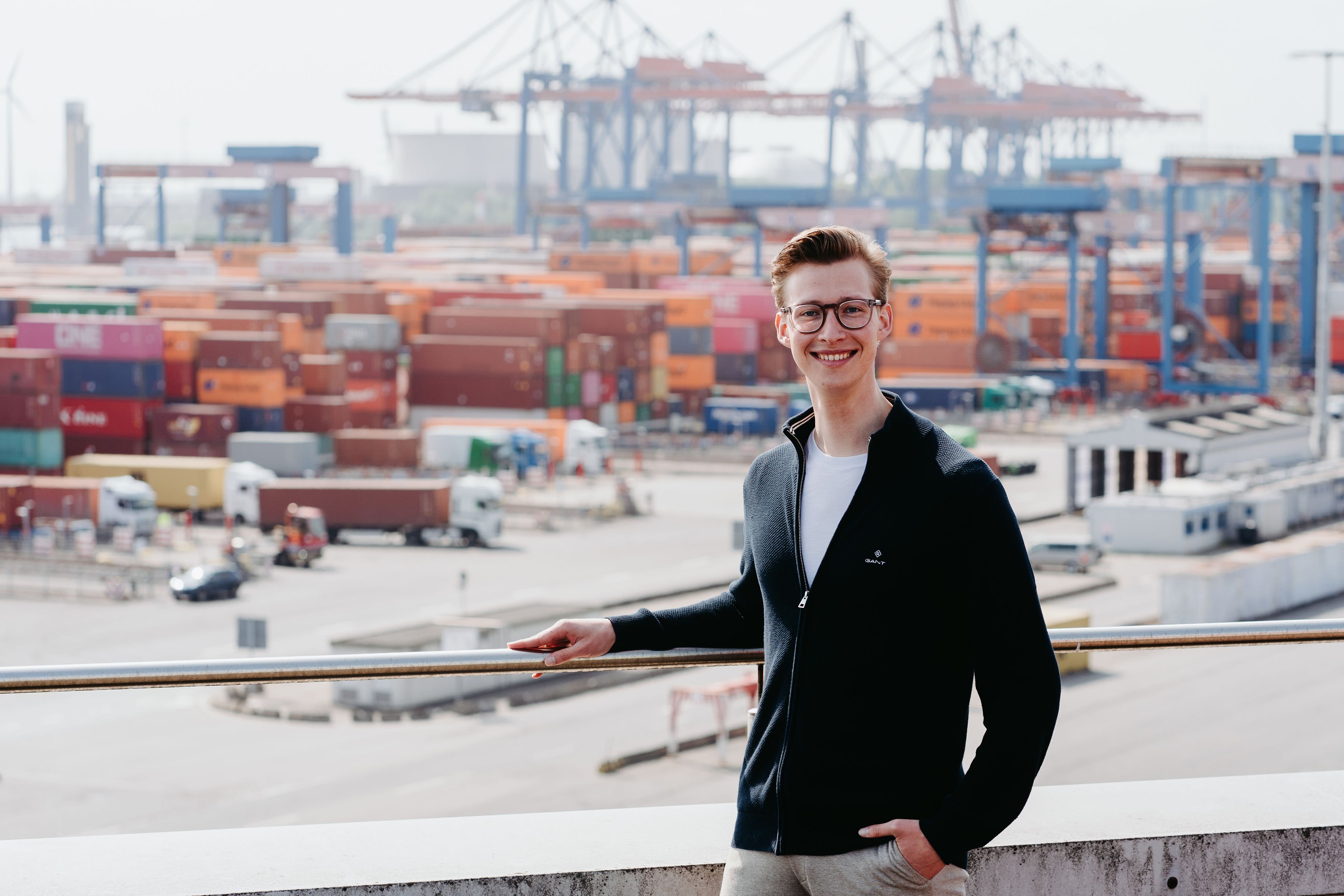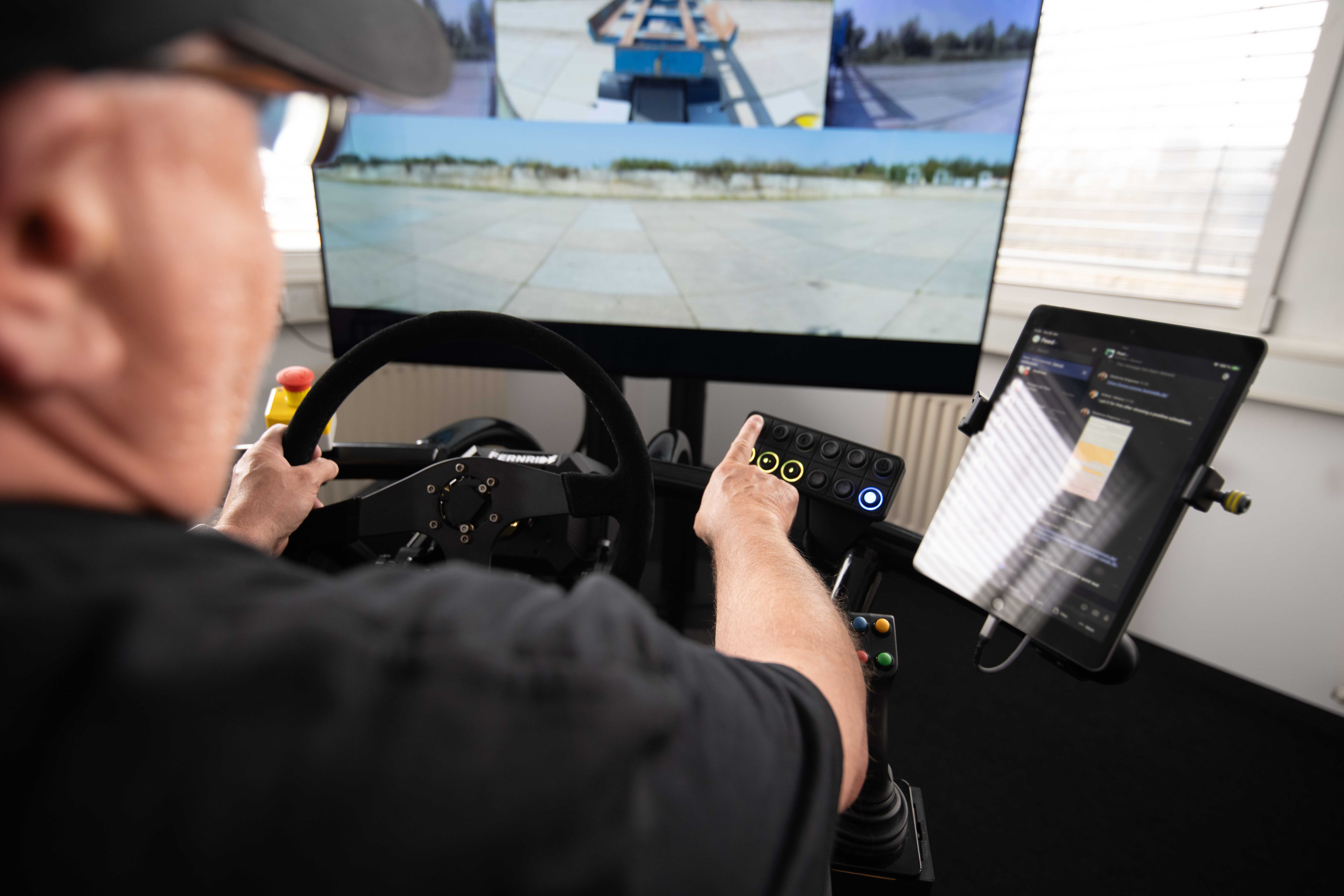Today German autonomous trucking company FERNRIDE announces it has raised $31 million in Series A funding.
FERNRIDE has developed a leading platform for autonomous, electric trucking. A step on the road to gradual autonomy, teleoperations allow drivers – teleoperators – to fully control electric trucks without actually sitting in them.
The company was founded by Hendrik Kramer, Maximilian Fisser, and Jean-Michael Georg and currently has over 100 employees working in offices located in Munich and Wolfsburg.
Customers include Volkswagen, DB Schenker, BSH, and HHLA, operating over 1,000-yard trucks in Europe alone.
Yard trucks operate on private sites, moving cargo from A to B, such as moving containers between two halls on-site at a one to two-kilometre distance 100 times a day.
I spoke to Hendrik Kramer, CEO and co-founder of FERNRIDE, to learn all about it.

Why remotely controlled trucks?
Even though trucks transport 75% of Europe's freight by volume and 85% of its perishable, high value and medical goods, such as vaccines and food, the region (like the rest of the world) face a severe shortage of drivers, with those employed ageing out of the profession.
The current shortage of 400,000 truck drivers in Europe alone is projected to increase to 2,000,000 by 2026. And autonomous trucking is expensive, hard, and difficult to scale.

In teleoperations, an operator can remotely operate or drive four trucks simultaneously, managing a fleet and handling the difficult edge cases when the autonomous system needs assistance.
A time of reckoning for autonomous trucking
Despite companies like Gatik and Waymo deploying autonomous trucks in middle-mile deliveries (such as between micro fulfilment centres, drugstores, smaller warehouses, and other local pickup points, overall, the industry has faced significant challenges in its efforts to roll out autonomous delivery trucks.
TuSimple is restructuring and laying off about 30% of its global workforce.
Embark was sold to simulation and software provider Applied Intuition after cutting 70% of its workforce.
And, well, the less said about Nikola, probably the better.
Kramer asserts that despite startups blaming regulators for delays,
"The problem is that the technology is not ready. The framework is there, but no one can launch it.
When it comes to trucking, you are moving 40-tonne trucks at high speeds, you need to predict the future already 10 to 20 seconds ahead of time with every dynamic object on that on the road. This is a tough problem to solve.
But it will come in the next couple of years. So the timing to launch is now on private sites."
FERNRIDE views their approach as incremental.
"We want to drive this transformation but make it as seamless as possible for our customers," explains Kramer.
"Investors, customers and employees love that we can launch something now and then expand exponentially yearly.
"We do not believe that going directly to the open roads is the best go-to-market strategy. But we wanted to start now with a use case that we can deploy today to distribution centres and big industrial sites.
This results in 1000s of trucks deployed and dozens of enterprise customers providing the data to win the data and the trust of the regulatory bodies to go that next step. And this means getting operational now, not waiting years."
Move slow, win things
Kramer asserts that not being first has its advantages:
""Sometimes it's also good when you come a little late to the party", contends Kramer. We offer professional remote operator training. We have playbooks for driving this transformation and successfully integrating it with IT infrastructure and customer processes. And we have partnered with several vehicle manufacturers on the hardware side."
The company combines a decade of research with expertise from the autonomous vehicle and automotive industries, having recruited senior management team members from BMW, MAN, Mobileye, and Argo.AI
"We can now build on ten years of R&D, hardware advances, and manufacturing partners and then provide an end-to-end solution."
FERNRIDE is funded by venture capital firms 10x Founders, Promus Ventures, Fly Ventures, Speedinvest, and Push Ventures, along with corporate investors, such as HHLA Next, DB Schenker via Schenker Ventures and Krone
The latest funding will be used to scale FERNRIDE's operations with existing and new customers globally and boost its technological development.



Would you like to write the first comment?
Login to post comments